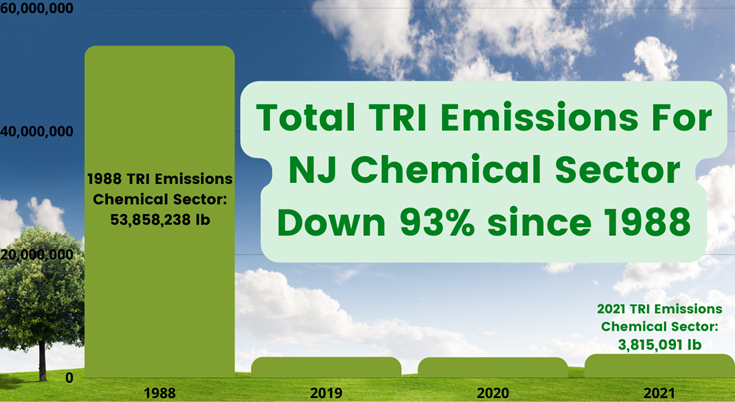TOTAL TRI EMISSIONS FOR NJ CHEMICAL SECTOR DOWN 93% SINCE 1988
The chemistry industry in New Jersey has shown remarkable progress in managing and reducing waste, as highlighted by the latest 2021 Toxics Release Inventory (TRI) National Analysis report released by the U.S. Environmental Protection Agency (EPA) earlier this month. The report shows a significant decrease in environmental releases of chemicals from facilities covered by the program, and a notable increase in waste management and recycling by member facilities
CCNJ members are continuously identifying source reduction opportunities to minimize waste and its impact on the environment. Our members create the science to produce the products that improve and sustain our quality life. Our members are committed to reducing their environmental impact, while supporting a robust New Jersey economy.

